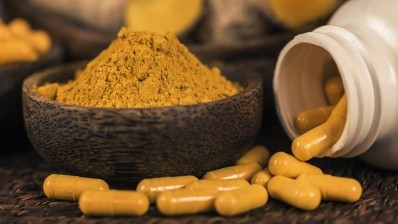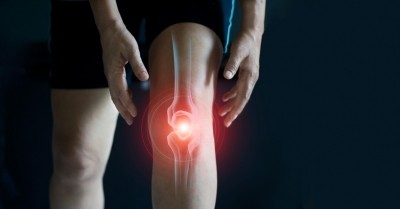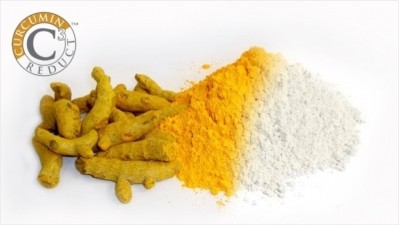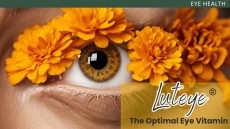Curcumin supplements failing to match label claims, report finds
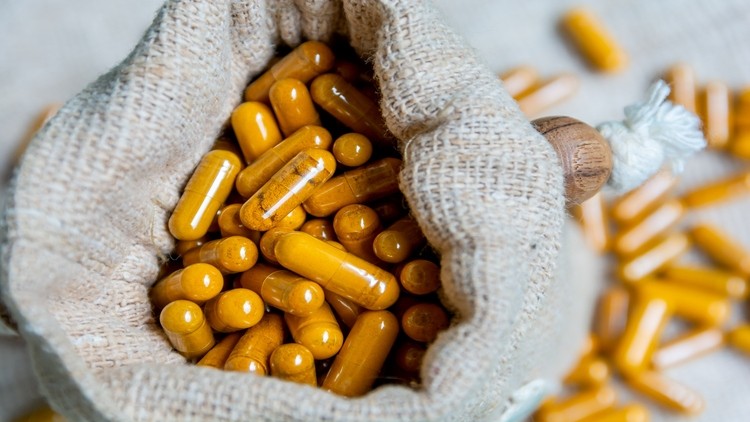
Curcumin has a wide range of pharmacological activities including antioxidative, anti-inflammatory, anti-inflammatory and antioxidant activity that has been linked to improvements in cardiovascular health, cognitive function, joint health, and demand has grown considerably because of these health benefits and because consumers want natural products perceived as non-toxic or less toxic rather than synthetically obtained compounds.
Researchers at the Université Paul Sabatier in Toulouse assessed the quality of 30 dietary supplements (DS) along with five standard curcuma rhizomes, and found that just 58% of the supplements contained the expected amounts of the actives, curcuminoids and piperine (a bioactive compound found in black pepper)..
The researchers said: “A preliminary investigation with the ultra-high-performance liquid chromatography coupled to high-resolution mass spectrometry detection revealed a great disparity in their chemical composition which was confirmed by a more in-depth qualitive and quantitative analysis.”
They said that when only a quantity of curcumin is indicated on the label, it is not possible a priori to know if it corresponds to curcumin alone or demethoxycurcumin (DMC), and bisdemethoxycurcumin (BDMC) - natural curcumin congeners from turmeric. In addition, they say, the amounts of turmerones are never specified although they are known to have numerous pharmacological properties and to affect the absorption of curcumin.
“It was shown that the DS labels were often not explicit enough for the uniformed consumer because incomplete and the actual amounts of actives did not always match those claimed,” they wrote.
While a direct comparison with the US market was not possible because this related to France only, a study published in the journal Food Chemistry looked at 14 turmeric extract dietary supplements sourced from the US market.
They were analysed for biobased carbon content and for the content in curcuminoids.
Quality issues
Stefan Gafner, Chief Science Officer at the American Botanical Council, looked at a similar study relevant to the US. He found that the results showed seven of 14 tested products did not pass the strength criteria (90-100% of the labeled curcuminoid content) with four products containing less than 3% of the labeled curcuminoid amount. Seven of 26 DS (27%) from the French market fail the 90-100% curcuminoid or the 2% curcuminoid content specifications, and 11 of 26 (42%) failed either the curcuminoid or piperine concentration claims.
In comparison, he noted seven of 14 samples (50%) on the US market fail the curcuminoid specifications. Six DS (23%) available in France had relative curcumin concentrations above 86%, while this number was 5 of 14 DS (36%) in the United States.
He said: “Since both studies have a relatively small number of products included, and product selection criteria are not well described, these data may not represent the overall quality of turmeric DS in France and the United States. But the data certainly shows that quality issues occur in both countries, and that the issues are comparable from one country to the other.
“Based on the data, the quality of turmeric DS is not what we would like it to be.”
Supply chain deficiencies
The Global Curcumin Association has reported they are concerned with this issue in other markets.
Len Monheit, GCA’s Executive Director said: “We share the concern expressed in this paper. While overall the good players usually identifying and using branded ingredients are in compliance, and the online channel specifically presents a risk because of its limited barriers. We have conducted our own testing in the US on products purchased online and our results are similar to those in this study. In fact, one completed in the last 30 days in which 55% of products did not meet label claim further supporting a peer-reviewed publication on this very topic where we found that 36% failed on quality.
He said the GCA had further pinpointed some of the supply chain deficiencies which included opacity and ignorance at contract manufacturing and recommends more brands conduct extensive third party testing and thoroughly vets their supply chain partners.
The writers of this paper concluded: “The health authorities should require manufacturers to detail the amounts of each curcuminoid to indicate those of turmerones and to have more scientifically substantiated communication regarding the influence of the enhancers on the bioavailability of curcuminoids.”
Source: Journal of Pharmaceutical and Biomedical Analysis
Published online: doi: 10.1016/j.jpba.2022.114631
“Quality assessment of Curcuma dietary supplements: Complementary data from LC-MS and 1H NMR”
Authors: S. Sorng et al.
